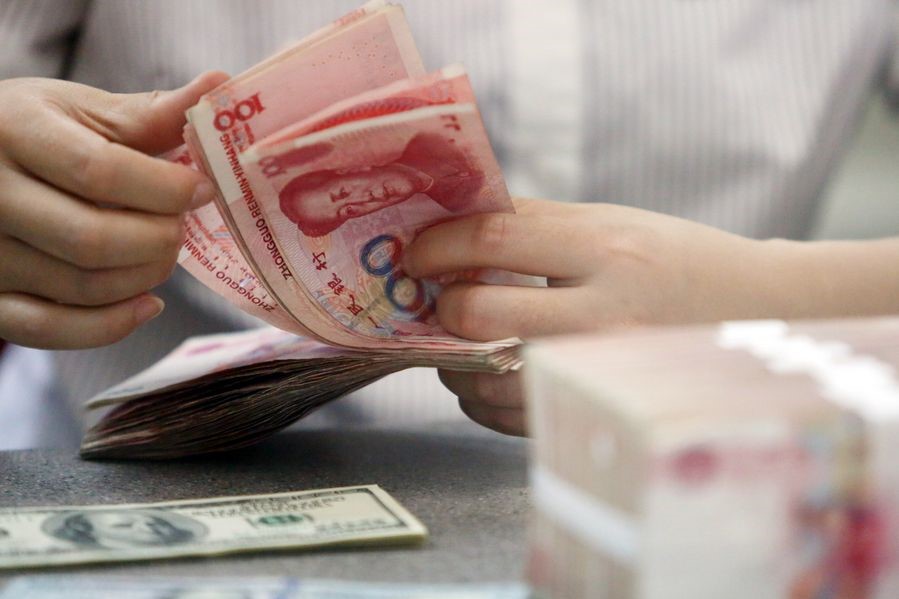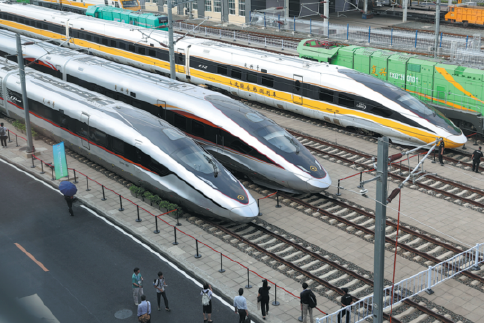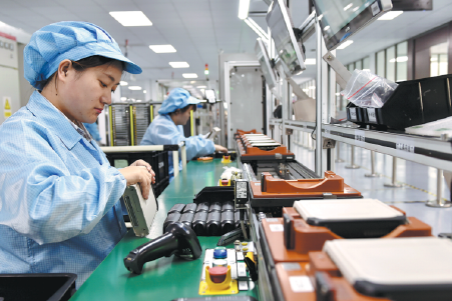Commerce ministry opposes 'yuan undervaluation' probe by US


China has urged the United States to drop the countervailing investigation into the so-called renminbi undervaluation, to safeguard its legitimate rights, the Ministry of Commerce said.
The recently launched investigation, targeting China's cable tie shipment, came after the US Department of Commerce introduced a new controversial rule in February. The rule allows the US government to levy anti-subsidy tariffs on products from countries that it considers have undervalued their currency against the US dollar.
China has noticed this so-called renminbi devaluation probes to its countervailing cases. China firmly opposes this kind of behavior, the head of the ministry's Trade Remedy and Investigation Bureau said in a statement on Thursday.
The official urged the US to comply with international rules and stop such investigations, noting this rule has been opposed by many parties and is suspected of violating the World Trade Organization rules. Even under US law, the contents of the applicant's appeal contained a large number of errors, and did not possess the necessary elements of countervailing, such as fiscal assistance, interest grant and specificity.
The ministry stressed that the renminbi's exchange rate is based on market supply-demand and is linked to a basket of currencies. The market plays a decisive role in the formation of the exchange rate.
Overall, the renminbi's exchange rate remains in reasonable equilibrium and is not undervalued. The renminbi has appreciated more than 17 percent against the US dollar since 2005, according to the statement.
Experts said the US investigation has created new barriers and added uncertainty to the already delicate economic and trade relations between the two countries. It may also generate an effect for the implementation of the phase-one China-US economic and trade agreement.
The US investigation into the "renminbi undervaluation" contradicts an earlier decision by the US Treasury Department to remove China's designation as a currency manipulator in January as part of the phase one trade deal, said Ma Yu, a senior researcher at the Beijing-based China Academy of International Trade and Economic Cooperation.
As countries are seeking ways to revitalize their economies to mitigate the impact caused by the COVID-19 pandemic and weak goods demand, he said US unilateral action will damage the hard-fought results aimed at de-escalating tensions and bilateral trade disputes. It could escalate the risks of a new round of tariffs.
Even though the US has pressured companies from certain developed countries to cease operations in China, and tried to build a global industrial and supply chain without China, foreign direct investment from the US continued to flow into China and rose by 6 percent on a yearly basis in the first six months of this year.
While some observers have been concerned about a possible capital retreat because of trade tensions with the US, China has maintained its key position in FDI for global investors, especially from developed economies, said Wang Yu, global partner of Kearney, the US-based management consulting firm.
In addition to other US companies, such as ExxonMobil, Honeywell, Tesla and Walmart, which have big-ticket investment projects in China, Coca-Cola Co also announced earlier this week encouraging performance in the second quarter on the back of sparkling business in the Chinese market and an improving global environment, although its quarterly revenue fell 28 percent.
To avoid risks, China must keep developing other international markets through a variety of channels, such as the development of industrial, investment and service cooperation with economies such as Japan, South Korea, the Association of Southeast Asian Nations and the European Union, said Wei Jianguo, vice-chairman of the China Center for International Economic Exchanges.
"Backed by a number of bilateral and multilateral free trade agreements, it is a realistic choice for China and these economies to jointly gauge the region's consumption potential and stimulate the vitality of regional cooperation," he said.




































